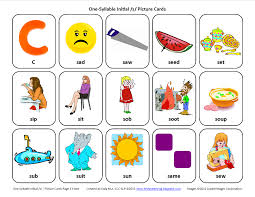Initial “S” Words: Building Vocabulary and Speech Skills
Introduction to Initial “S” Words
The letter “S” is one of the most versatile and frequently used letters in the English language. For children learning to read and speak, mastering words that begin with “S” is a fundamental step in building a strong vocabulary. These words often serve as the building blocks for more complex language skills and are commonly used in everyday conversation.
Common Initial “S” Words for Kids
For preschoolers and young children, it’s essential to start with simple “S” words that they can easily pronounce and understand. Some of the most common initial “S” words for kids include:
- Sun: The bright star that gives us light and warmth.
- Sit: To rest with the body supported by the buttocks or thighs.
- Salt: A white crystalline substance that adds flavor to food.
- Soup: A liquid dish typically made by boiling meat, fish, or vegetables.
- Shoe: Footwear worn to protect and comfort the feet.
- Sail: To travel on water in a boat or ship.
- Sad: Feeling sorrow or unhappiness.
- See: To perceive with the eyes.
- Sing: To make musical sounds with the voice.
- Star: A celestial body that shines in the night sky.
Expanding Vocabulary with More Complex “S” Words
As children grow, their vocabulary expands, and they can begin to tackle more complex words that start with “S.” These words often introduce new concepts and ideas:
- Scarf: A piece of fabric worn around the neck for warmth or fashion.
- Schedule: A plan for carrying out a process or procedure, giving lists of intended events and times.
- School: An institution for educating children.
- Science: The study of the natural world based on facts learned through experiments and observation.
- Sculpture: A three-dimensional work of art created by shaping or combining materials.
- Strategy: A plan of action designed to achieve a long-term or overall aim.
- Success: The accomplishment of an aim or purpose.
- Sympathy: Feelings of pity and sorrow for someone else’s misfortune.
- Surprise: An unexpected or astonishing event or fact.
- System: A set of connected things or parts forming a complex whole.
Using Initial “S” Words in Sentences
Incorporating initial “S” words into sentences helps children practice their pronunciation and understand the context in which these words are used. Here are a few examples:
- “The sun shines brightly in the sky.”
- “Please sit down and enjoy your soup.”
- “She tied her scarf around her neck before going outside.”
- “Science helps us understand how the world works.”
- “The star twinkled in the night, far above the earth.”
Final Thoughts
Mastering initial “S” words is an essential step in language development for young learners. These words are not only fundamental to everyday communication but also help children build the confidence to explore more complex language structures. Whether in speech therapy, classroom settings, or at home, practicing “S” words can be a fun and educational experience that lays the groundwork for a lifetime of effective communication.




